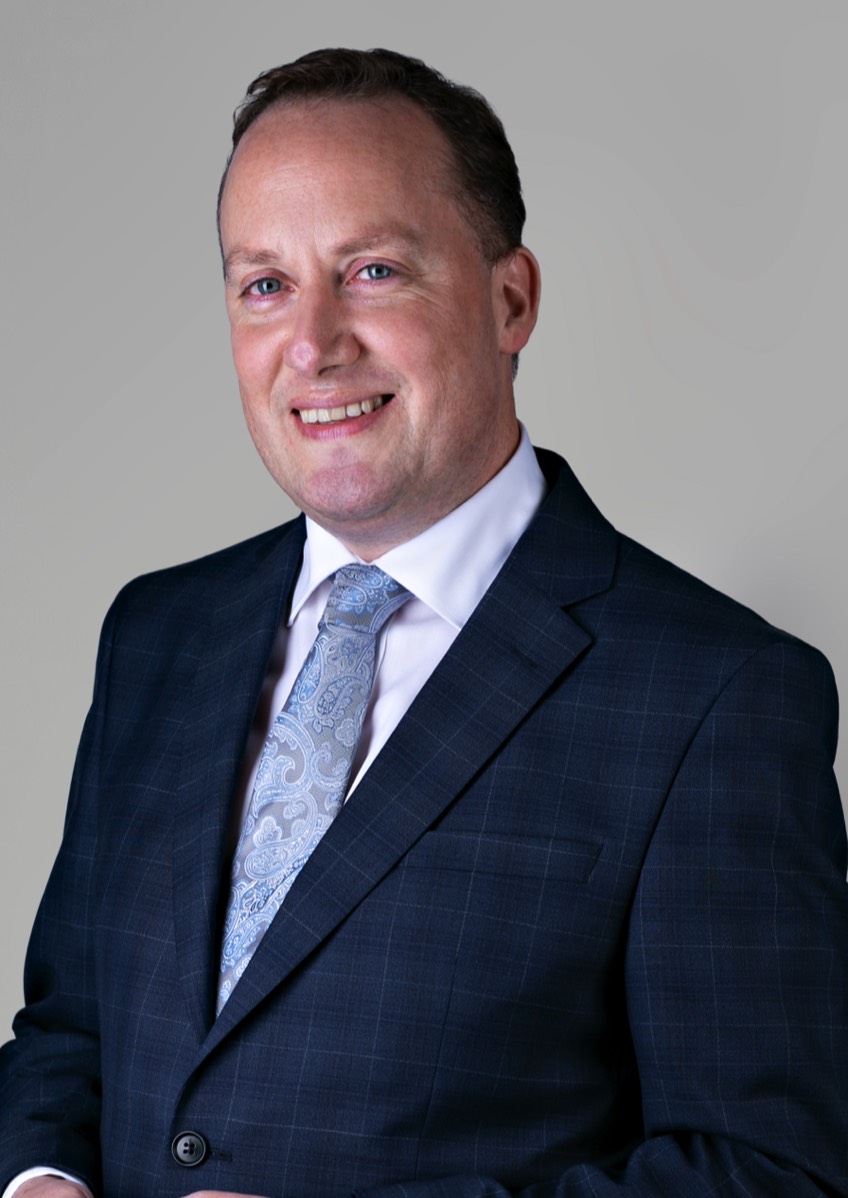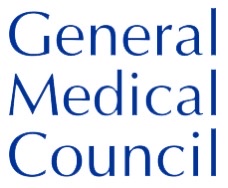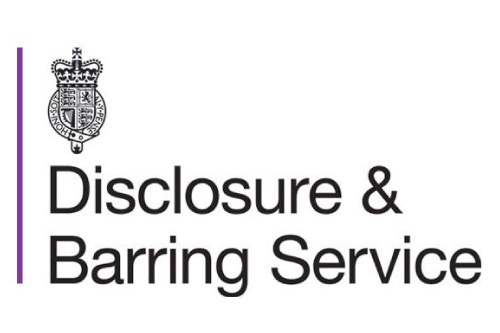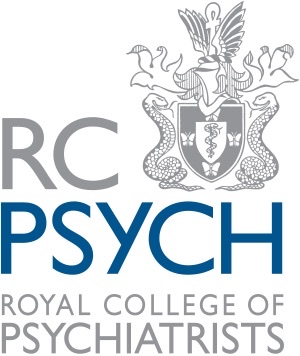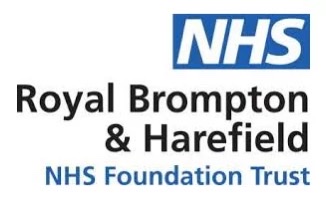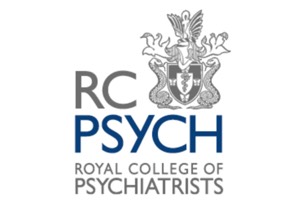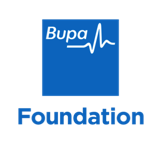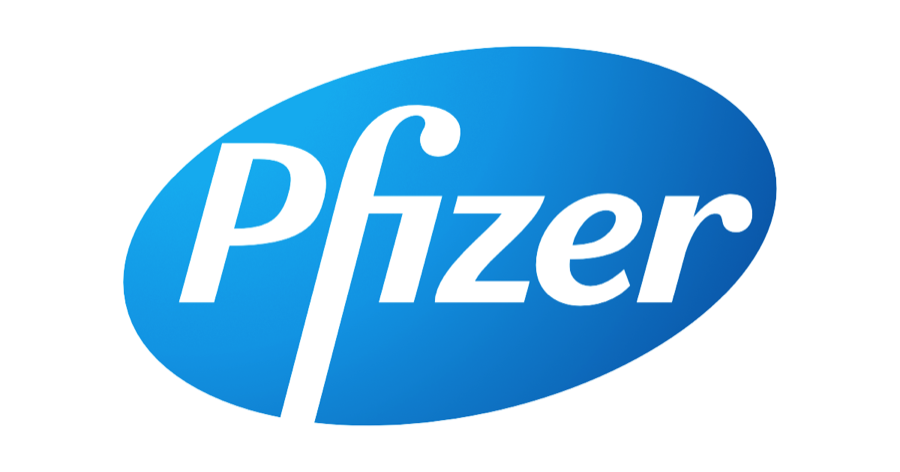Patients
Maybe you’re feeling depressed or anxious but are not sure what steps to take to feel better. Perhaps you’re experiencing psychotic episodes and are not getting the help you need. Or perhaps you recognise that you are stuck in negative cycles which are having a negative effect on your life and you want to make changes.
Click for more info
All types of people from all walks of life come and talk to me about a wide range of problems. Some of these include difficulties dealing with changes in life, not having the coping skills to handle negative life events, the consequences of childhood bullying or deprivation, negative thinking styles or a lack of self confidence, as well as more major psychiatric disorders.
You may feel embarrassed or uncomfortable asking for help, which could be due to the anxiety or depression you’re experiencing. But it could also be as a result of society’s poor understanding of mental health difficulties and the stigma that can often surround it.
These feelings often reduce when you realise that many other people – just like you – or me - are having difficulties with similar issues and that help is available in a supportive, non-judgemental setting.
If you’re experiencing any difficulties with your mental health, please see your GP in the first instance who will then make a referral for you to see me. Or if you prefer, you can contact me directly.
Family & Friends
Watching someone close to you struggle with everyday life and make poor decisions that affect their wellbeing can be extremely distressing. But there is help available and we can discuss what steps need to be taken to get your loved one the help and support they need.
If you’re concerned about the mental health and behaviour of your friend or family member it can be difficult knowing what you can do to help them, especially if they don’t want to seek help themselves.
Click for more info
To start with, I’m happy to have an appointment with you and other concerned family members without your relative or friend being present if that’s easier, and especially if that is their preference to start with. We can discuss a way forward, which may result in your friend or family member agreeing to see me for a face-to-face meeting. Or it may give us an opportunity to find a route of referral into the local NHS community based services, if that’s more appropriate.
If your relative or friend has private insurance, a letter of referral will need to come from their GP if they want to claim my fees back though this may be difficult if they choose not to attend an appointment thermselves. If they don’t have insurance, or you don’t want your GP involved, a GP referral isn’t absolutely necessary, although it’s preferable so I can get a complete picture.
You’re more than welcome to attend the appointment with your friend or relative, if they’re happy to have you there. It’s up to them and it’s often useful for me to hear different points of view. Sometimes it’s a good idea if you join us for part of the appointment and then step out for the other part. It’s also useful if medication that’s being taken (including alternative, homeopathic, and over the counter medicine) is brought to the appointment in the original containers, along with an up-to-date prescription list.
GPs, Hospital Doctors, Psychologists & Therapists
If you have a patient who is experiencing difficulties with depression, OCD, adult ADHD, psychosis, anxiety, bipolar or alcohol dependency or you need a second opinion on a matter, I’m happy for you to refer them to me so they can get the help they need. I see both self-funding patients and those covered by health insurance.
Click for more info
I see both self-funding patients and those covered by healthcare insurance. It’s usually a condition of insurance companies that I receive a written GP referral. Unfortunately, it’s not possible to see me privately and then continue seeing me under the NHS as my NHS work is in a highly specialist service.
After your patient’s appointment, with their consent my preference is always to keep you informed with a letter outlining the agreed care plan. It may be that I see your patient as a one-off to confirm a diagnosis and treatment options without the need for further follow-ups. I’m not in the habit of booking patients in for routine follow-ups if it’s not necessary.
I also work in the NHS, so I’m subject to standard NHS clinical governance, CPD, appraisal and revalidation requirements. I’m aware of various local CCG/ICS prescribing and shared care guidelines and endeavour wherever possible to adhere to them or I can assist in making a clinical case to a local prescribing committee if a non-formulary or off-licence indication is suggested.
Qualifications & Experience
I trained as a medical doctor at St Mary's Hospital Medical School, Imperial College, University of London and qualified as a medical doctor (Bachelor of Medicine and Surgery) in 1996. I was awarded a further degree in psychology from University College London.
I gained a higher postgraduate qualification in general medicine (MRCP) before specialising in psychiatry at the Maudsley Hospital in London and gaining further specialist postgraduate qualifications (MRCPsych, PgDip(CBT)) at Kings College London. The Maudsley Hospital has been a centre of excellence in psychiatric training and research for almost a century and is the largest and most influential mental health establishment in Europe. More recently I was elected as a Fellow of the Royal College of Psychiatry (2021) with the citation from the President reading "Fellowship of the College is awarded as a mark of distinction and recognition of contributions to psychiatry. You have clearly demonstrated and evidenced significant contributions to the core purposes of the Royal College of Psychiatrists and have been awarded the Fellowship because of this."
I have held a variety of posts and provided a wide range of expertise in the diagnosis and treatment of many conditions from anxiety and depression to schizophrenia, and from medication to psychotherapy. I currently work as a consultant psychiatrist both privately and at central London NHS teaching hospitals.
Qualifications
- 1995 Psychology BSc (Hons) University College London
- 1996 MB BS St. Mary's Hospital Medical School, Imperial College, University of London
- 2000 Membership of the Royal College of Physicians
- 2001 Membership of the Royal College of Psychiatrists
- 2002 Approved by the Secretary of State under Section 12(2) of the Mental Health Act 1983
- 2003 British Association of Psychopharmacology Clinical Certificate
- 2006 Postgraduate Diploma in Cognitive Behavioural Therapy, Institute of Psychiatry, London
- 2007 Certificate of Specialist Training – general adult psychiatry with liaison psychiatry accreditation. Entry on GMC specialist register
- 2021 Elected aș a Fellow of the Royal College of Psychiatrists
- 2022 Elected as a Fellow of the Royal College of Physicians
Experience
Includes posts at numerous prestigious London teaching hospitals
- St Mary's Hospital
- Northwick Park Hospital
- Ealing Hospital
- Royal Free Hospital
- Maudsley Hospital
- Royal Bethlem Hospital
- Institute of Psychiatry
- Kings College Hospital
- Queen Mary's Hospiral
- Springfield Hospital
- Queen Square Hospital, London
- Priory Hospital Roehampton
- St Anthony's Hospital
- Royal Brompton Hospital
- Harefield Hospital
- Schoen Clinic Chelsea
- Royal Marsden Hospital
Additional psychiatry experience at Rozelle and Rivendell Hospitals, University of Sydney, Australia
Research
I became actively involved in psychiatric research at an early stage and had my first academic work published whilst still a medical student. My academic skills subsequently developed after being awarded the highly competitive Maudsley Hospital research post and since then my range of published research papers have encompassed obsessive compulsive disorder, chronic fatigue syndrome, psychosis, neuroimaging and ADHD.
Anaesthetic techniques and considerations for bronchoscopy after lung transplantation: audit on patient satisfaction and experiences from a tertiary cardiothoracic and transplant centre.
Kapoor S, Sarridou D, Lees N, Carby M, Woolley J, Mitchell J
European Journal of Anaesthesiology, May 2015
Duration of untreated psychosis in adolescents: Ethnic differences and clinical profiles
Maria-de-Gracia Dominguez, Helen L. Fisher, Barnaby Major, Brock Chisholm, Nikola Rahaman, John Joyce, James Woolley, Jo Lawrence, Mark Hinton, Karl Marlowe, Katherine Aitchison, Sonia Johnson, Matthew Hodes
Schizophrenia Research, Available online 8 September 2013, ISSN 0920-9964http://dx.doi.org/10.1016/j.schres.2013.08.018.
Cannabis use and first-episode psychosis: relationship with manic and psychotic symptoms, and with age at presentation
Stone, J. M., Fisher, H. L., Major, B., Chisholm, B., Woolley, J., Lawrence, J., Rahaman, N., Joyce, J., Hinton, M., Johnson, S. & Young, A. H.24 May 2013 In : Psychological Medicine. p. 1-8
Reduced mismatch negativity predates the onset of psychosis.
Shaikh M, Valmaggia L, Broome MR, Dutt A, Lappin J, Day F, Woolley J, Tabraham P, Walshe M, Johns L, Fusar-Poli P, Howes O, Murray RM, McGuire P, Bramon E.
Schizophr Res. 2012 Jan;134(1):42-8. Epub 2011 Oct 24.
Neuroanatomical abnormalities that predate the onset of psychosis: a multicenter study.
Mechelli A, Riecher-Rössler A, Meisenzahl EM, Tognin S, Wood SJ, Borgwardt SJ, Koutsouleris N, Yung AR, Stone JM, Phillips LJ, McGorry PD, Valli I, Velakoulis D, Woolley J, Pantelis C, McGuire P.
Arch Gen Psychiatry. 2011 May;68(5):489-95.
Disorder-specific dysfunctions in patients with attention-deficit/hyperactivity disorder compared to patients with obsessive-compulsive disorder during interference inhibition and attention allocation.
Rubia K, Cubillo A, Woolley J, Brammer MJ, Smith A.
Hum Brain Mapp. 2011 Apr;32(4):601-11. doi: 10.1002/hbm.21048.
White matter alterations related to P300 abnormalities in individuals at high risk for psychosis: an MRI-EEG study.
Fusar-Poli P, Crossley N, Woolley J, Carletti F, Perez-Iglesias R, Broome M, Johns L, Tabraham P, Bramon E, McGuire P.
J Psychiatry Neurosci. 2011 Jul;36(4):239-48.
Gray matter alterations related to P300 abnormalities in subjects at high risk for psychosis: longitudinal MRI-EEG study.
Fusar-Poli P, Crossley N, Woolley J, Carletti F, Perez-Iglesias R, Broome M, Johns L, Tabraham P, Bramon E, McGuire P.
Neuroimage. 2011 Mar 1;55(1):320-8. Epub 2010 Dec 1.
Neural correlates of movement generation in the 'at-risk mental state'.
Broome MR, Matthiasson P, Fusar-Poli P, Woolley JB, Johns LC, Tabraham P, Bramon E, Valmaggia L, Williams SC, Brammer MJ, Chitnis X, McGuire PK.
Acta Psychiatr Scand. 2010 Oct;122(4):295-301. Epub 2010 Jan 7.
Neural correlates of visuospatial working memory in the 'at-risk mental state'.
Broome MR, Fusar-Poli P, Matthiasson P, Woolley JB, Valmaggia L, Johns LC, Tabraham P, Bramon E, Williams SC, Brammer MJ, Chitnis X, Zelaya F, McGuire PK.
Psychol Med. 2010 Dec;40(12):1987-99. Epub 2010 Mar 10.
Disorder-specific dysfunction in right inferior prefrontal cortex during two inhibition tasks in boys with attention-deficit hyperactivity disorder compared to boys with obsessive-compulsive disorder.
Rubia K, Cubillo A, Smith AB, Woolley J, Heyman I, Brammer MJ.
Hum Brain Mapp. 2010 Feb;31(2):287-99.
Effect of age at onset of schizophrenia on white matter abnormalities.
Kyriakopoulos M, Perez-Iglesias R, Woolley JB, Kanaan RA, Vyas NS, Barker GJ, Frangou S, McGuire PK.
Br J Psychiatry. 2009 Oct;195(4):346-53.
White matter microstructure in schizophrenia: effects of disorder, duration and medication.
Kanaan R, Barker G, Brammer M, Giampietro V, Shergill S, Woolley J, Picchioni M, Toulopoulou T, McGuire P.
Br J Psychiatry. 2009 Mar;194(3):236-42.
Neural correlates of executive function and working memory in the 'at-risk mental state'.
Broome MR, Matthiasson P, Fusar-Poli P, Woolley JB, Johns LC, Tabraham P, Bramon E, Valmaggia L, Williams SC, Brammer MJ, Chitnis X, McGuire PK.
Br J Psychiatry. 2009 Jan;194(1):25-33.
Abnormal P300 in people with high risk of developing psychosis.
Bramon E, Shaikh M, Broome M, Lappin J, Bergé D, Day F, Woolley J, Tabraham P, Madre M, Johns L, Howes O, Valmaggia L, Pérez V, Sham P, Murray RM, McGuire P.
Neuroimage. 2008 Jun;41(2):553-60. Epub 2008 Jan 4.
Brain activation in paediatric obsessive compulsive disorder during tasks of inhibitory control.
Woolley J, Heyman I, Brammer M, Frampton I, McGuire PK, Rubia K.
Br J Psychiatry. 2008 Jan;192(1):25-31.
Delusion formation and reasoning biases in those at clinical high risk for psychosis.
Broome M R; Johns L C; Valli I; Woolley J B; Tabraham P; Brett C; Valmaggia L; Peters E; Garety P A; McGuire P K
British Journal of Psychiatry. Supplement 2007;51():s38-42.
Insight in individuals with an At Risk Mental State.
Lappin JM, Morgan KD, Valmaggia LR, Broome MR, Woolley JB, Johns LC, Tabraham P, Bramon E, McGuire PK.
Schizophr Res. 2007 Feb;90(1-3):238-44. Epub 2007 Jan 9.
Progressive increase of frontostriatal brain activation from childhood to adulthood during event-related tasks of cognitive control.
Rubia K, Smith AB, Woolley J, Nosarti C, Heyman I, Taylor E, Brammer M.
Hum Brain Mapp. 2006 Dec;27(12):973-93.
What causes the onset of psychosis?
Broome MR, Woolley JB, Tabraham P, Johns LC, Bramon E, Murray GK, Pariante C, McGuire PK, Murray RM.
Schizophr Res. 2005 Nov 1;79(1):23-34. Review.
Outreach and support in south London (OASIS): implementation of a clinical service for prodromal psychosis and the at risk mental state.
Broome MR, Woolley JB, Johns LC, Valmaggia LR, Tabraham P, Gafoor R, Bramon E, McGuire PK.
Eur Psychiatry. 2005 Aug;20(5-6):372-8.
What can neuroimaging tell the clinician in schizophrenia?
Woolley J, McGuire PK.
Advances in Psychiatric Treatment May 2005; 11: 195 - 202.
Alcohol use in chronic fatigue syndrome.
Woolley J, Allen R, Wessely S.
J Psychosom Res. 2004 Feb;56(2):203-6.
Dexamphetamine for obsessive-compulsive disorder.
Woolley JB, Heyman I.
Am J Psychiatry. 2003 Jan;160(1):183.
Woolley J, Smith S.
Lowered seizure threshold on olanzapine.
British Journal of Psychiatry 2001, 178:(85-86)
Hodes M, Creamer J, Woolley J.
Cultural meanings of ethnic categories
Psychiatric Bulletin Jan 1998, 20-24
Thanks for helping me through a very difficult time and a very traumatic adjustment……Thank you on behalf of… that you have helped cope in crisis with unexpected, life changing and long term conditions and complications.
I would like to take this opportunity to sincerely thank you on behalf of xxx and myself for your amazing care, support and understanding.
I wanted to say a big THANK YOU for the important role you played in helping me get well again. I couldn't have done it without your support, kindness and compassion. I wanted to let you know that I got that big job…… I did it all on my own without any medication! I am feeling more myself than I have for years and am excited for the new adventures ahead. Thank you for everything….
It's so hard to find the words to express how grateful and thankful I am for all your care, support and help. I don't know how I'd of coped, if at all, without you to be honest!
Thank you for being such a great source of support and bringing a calming and rational voice through the years….
I must say I am feeling very good - I have more energy and I am getting less of the vacant/fuzzy feeling at work even when frazzled. So all round I am in good shape…..I feel in control and stable. If things were to change then I will be in touch to make an appointment with you.
Thank you so much for helping me over the last two years. I was in an unimaginably horrific place when we met, and I am grateful for the role you have played in helping me through it.
Dear James,
I wanted to drop you a quick email to thank you for looking after me for 2 weeks almost 7 years ago! When I came into see you, I clearly wasn't on top of things!
I'm sorry it has taken me this long to write! Its poor form on my part!
I now have wonderful children and I'm very happily married to my fabulous wife. My company is also going well.
I now run my brain as opposed to my brain running me!
Thank you for your help it has been life changing to realise my anxiety and to change my lifestyle
Loving life and enjoying the activities, friends and family I am involved with and surrounded by. In addition, I have not altered my medication and reordering through my doctor is running smoothly…I can’t thank you enough and wish to take this opportunity to say you that you have saved my life, as dramatic as that sounds……. it is true.
Many thanks for meeting with me today and I'm relieved you assessed me with objectivity and common sense.
Thank you so much for taking the risk with me as a patient and for being so patient with me when I was so angry with the world….Thank you so much for seeing me through this time in my life….I will never forget the kindnesses shown to me during my time in hospital…..Thank you again for everything you did for me and for taking me on as a patient.
Please could you pass on my thanks and gratitude to Dr Woolley. He was so reassuring, understanding and easy to talk to - a really lovely man! I left my consultation last week feeling instantly better and I am really grateful for his time and advice. I wouldn’t hesitate to recommend him (in fact I already have!) or seek his advice again the future. Thank you.
You did superb Dr Woolley, you had both, you practiced with ethics and you had a heart , thank you very much! I'm deeply thankful for your significant help, for your support, for your generosity and thank you very much for being there for me.
At the moment, the medication has made a huge difference/ improvement to my life - in terms of renewed/ higher energy levels, ability to get on with things, positivity and general resilience. It's a helpful reality check also for me to be reminded of what "normal" looks like, in terms of anxiety etc. And I feel more like my previous/ younger self - from many years ago.
I have decided to return to the States. There is a possibility that I will not be returning to London for awhile, and therefore I do not need an alternative appointment. However, should my circumstances change I will undoubtedly request to consult with Dr. Woolley. I appreciate his assistance during my time in London. In fact, I struggled to come to terms with returning to the States because I will miss Dr. Woolley. Thank you for your help, Dr. Woolley!
As ever - thank you so much for your help….It really is much appreciated. If anyone ever asks me for recommendations about who to see with any problems - I say Dr Woolley every time!
I am truly grateful to you for all your help and care to bring back xxx into the world and for probably saving his life. Xxx has never liked doctors, so you made an extraordinary connection with him, against the odds. I will always remember how patient and calm you were towards him. With so many thanks and best wishes.
Thank you for your continued support. I am in such a better place in life now, also I've now realised I can live without medication which I didn't think possible a couple of years back.
I want to thank you very much for being so helpful and reassuring …… my sincerest thanks and best wishes…. the letter was paramount to this. I appreciate the prioritisation. My health is great and I'm excited for my future in this calmer setting!
xxx is safely through the exam she missed and is making a real success of her time at [university]. Thank you
massive thank you!
... thank you very much for your efficiency, as you took the time to solve this urgency in a very professional way.
I am very grateful to you for everything you have done for me over the years and no doubt will continue to do from time to time in the future. It does show that it is possible to achieve important things despite mental illness.
By way of update, the new medication regime you put me on is working well. The increased dose of xxx in particular has made a massive difference to my quality of life. I still need to take it and if I don’t the physical anxiety symptoms return but provided I do take it regularly, spaced throughout the day, it works well and means that I can live a fairly normal life.
Best wishes and thank you for everything
I wanted to write to thank you for all your support, assistance and guidance over the last few years, it really has made a massive difference to my life.
I now have a new job since returning from my travels, and my wedding is in 3 weeks! After a wobbly start in the job where I had to use…. I haven't had any now for a few weeks, and that's with wedding planning stress and buying/selling a house. I feel nearly myself again. He has helped me no end, so thanks to him, you and the team.
Please can you pass on my hugely grateful thanks to Dr Woolley for his time today. I had never before appreciated what a complicated situation someone in his position can have to manage and he was brilliant. We both came away feeling happy with the consultation which under the circumstances was a real achievement, and I found some of his justifications and explanations hugely relieving. This is not to say I felt he was taking sides - he seemed to be being impartial and helpful. I felt he really helped us to make sense of some things.
I can not thank you enough for your care in the last 14 months, and previously, as well as critical support for my retirement application, especially at a time of my own inability. Sincere thanks again
I wanted to write to thank you for all your support, assistance and guidance over the last few years, it really has made a massive difference to my life
Thank you again for your wonderful and compassionate care for our daughter xxx.
I just wanted to thank you for the balanced and considered update you send my GP and others. In one letter you've managed to keep everyone on track and parked my multi-agency anxieties!
More importantly I have not experienced any particular problems and my mood has been more stable than for several months…
xxx has just got her exam results and that she got a high first in all 6 modules! ….. Thanks for all of your help.
Please let Dr Woolley know that xxx is very happy with how these new meds work. Thank you.
…everything you have done for me thus far is more than I am able to express in words.
I wanted to express my gratitude to Dr Woolley for referring my Aunt…. We attended this afternoon to learn her diagnosis, and it transpires that she has atypical Alzheimer's, and is likely to benefit from cognitive enhancers. We really are so very grateful that Dr Woolley followed up his instinct that her presentation suggested something more than/different from straightforward fronto-temporal dementia.
… I am not sure I have the vocabulary that allows me to fully express my sincere gratitude and to truly do justice and quantify in words quite how amazing a process and program I have experienced.
I came to the Priory Roehampton in November 2012. Like many others I was broken yet not quite ready to admit to this and surrender. Greeted by a team of therapists who not only understood my issues, my anger, and me, but also were genuinely interested in helping me to obtain recovery, I was resistant to their suggestions, program and plans. They however persevered, eventually breaking down my barriers and worked with me to show me that recovery was achievable provided I was willing to commit to the program.
The program also made provision for my wife and family (parents & sisters) to engage in the process, express their anger, frustrations and concerns and channel these into positive thoughts, feelings and behaviours which I believe have been instrumental in my recovery so far. Without their understanding of addiction, engagement in my recovery and the opportunity to witness first hand individuals who, through recovery, have turned their lives into success stories, I do not believe my recovery would be what and where it is today…
I truly believe that [Priory team] play an invaluable role in helping addicts achieve what we view as impossible when in the throws of active addiction. In return for a little commitment, an open mind and the willingness to follow a few simple suggestions, they have given me a life full of happiness beyond my wildest imagination, and for this … I thank you.
At the risk of quoting a Mastercard commercial!
Addiction: - £ everything we own & care for
Treatment:- £ 20,000
Recovery: - £ Priceless !
Could you thank Dr Woolley for me please
xxxx is back with us. There were times, many, when I never thought I would see xxx again. But xxx is back, strong and I suspect a better person. We have had 22 days straight of new xxx
We hope never to go back there but want you to know that I and we appreciate all the support and help we have got in putting xxx back together.
My perceptions of mental health have changed beyond any measure, it has been more than an eye opener, we will think about what we can do to help others in the future.
I am hoping now we can get our family back together again and it feels like this is achievable.
I really can't thank you enough
I would like to thank you so much for all your expertise and support, as I am not sure I would have even started the course, let alone done well without your guidance.
Thank you for all your help and support over the past couple of years.
Just to let you know I am feeling very well, having recently returned from a rather wonderful trip…
….having worked in xxxxx, I have sometimes met psychiatrists who were knowledgeable, but that a psychiatrist who is also wise, as Dr Woolley is, is a rarity.
Subject: Your diagnosis proved accurate
You very kindly took time to examine my mental health a few years ago and correctly diagnosed my condition (ADD), as a result of which I'm now enjoying improved health and a better social, work and home life. I just wanted to thank you for that…
I just wanted to send you a message from the xxx awards to say thank you SO MUCH for everything that you have done. I can't believe I'm here and I know I wouldn't be alive today without you, so thank you so much.
Firstly, thank you for seeing me on xxx. I immediately felt so much better after our consultation, as I felt I had taken the first step to getting well…… I am happy to tell you that I am feeling so much better and the future is looking bright for the first time in two years. The sessions have given me the tools to turn my negative thought patterns into positive ones and I now feel in control of my emotions and anxiety. I feel optimistic and much happier, which has given me the confidence to share with [others] what I have been going through.
I saw xxx this week. She was very pleased with how the meeting went and felt it was quite different to her other meetings. So good to have linked her with someone she feels she fits with.
A year on from my diagnosis, I would like to say thank you for the excellent, compassionate care and support you provided. I continue to feel better each week and you were right when you said the next 20 years of my life could be so different!
I wish every patient with mental health issues had access to your services. Thank you.
A year ago and 3 months before that I was here in hospital feeling that it would be no bad thing - for me or for anyone else - if I did not wake up the next day. You have always treated me with what I consider to be the highest possible level of care, real concern for my well-being, with deep respect and support.
As a result of this I have felt worthy of being treated by others with respect (and support). I now feel I deserve to be accorded a sense of dignity by all-whilst being open and honest about my mental health….. I have now been recognised in the city of London and nationally for my advocacy and campaigning for mental health. This absolutely would not have happened without you so I want to say is huge, very heartfelt thank you for keeping me alive and helping to reduce stigma and increased support and awareness. I will never forget what you have done for me and enabled me to do.
Thank you so much for all your precious time in helping me get back to my ‘old’ self!
Thank you again for all of your help in 2013/2014. I managed to finish University in 2014 and have been working in dynamic and interesting jobs for 8 months now and everything is firmly back on track.
Firstly may I thank you for the very useful appointment I had with you….. may I send you again heartfelt thanks for the 90 minute discussion we had….. which I found very helpful.
It was really great meeting with you the other week, thanks for your help!
….my meds are working a treat and xxx noticed a significant shift. I have probably had the best week since Christmas. Calm, focused and productive. Thank you!!
I would like to say the biggest thank you to a man who listened to me; who read my notes and tried to understand me as a person not as a number in a very long list of patients - Dr Woolley. You are by far the best psychiatrist I have had the pleasure to meet. One who every patient would wish to have. A man who takes on your care as his responsibility and one who is proud of your progress as a human being. My previous relationship with psychiatrists has been purely been quick drops into my life with no real interest in me as a person and it seemed with the intention to fill me with as many pills as possible. However, you are by far the opposite. You have, again like others [at the Priory] managed to see a strength in me I didn’t know I had. You took the time to listen to me, you fed back to me your opinions and I felt we built a strong patient-doctor relationship. Therefore, I must say thank you for your time and care you have been a wonderful part of my recovery and anyone who is lucky enough to have you as a consultant should be honoured.
…thank you for all of the work you have been doing with her, she was progressing really well…
Please let Dr Woolley know how grateful I/we are and that xxx’s 10 hour assessment from Mt Sinai confirms his diagnosis.
Please convey my gratitude to Dr Woolley
Thanks for all your help and Dr Woolley's with regard to the exam permissions - thought I'd let you know that thanks to his letter the second request was successful, so please do pass on my thanks.
xxx is returning to Oz today, says thank you for all your help
thank you – I omitted last night I am afraid to say how well we think the Priory team deal with these very tricky matters and how xxx has utmost confidence in the professional advice that she receives from Dr Woolley in particular – which is the most important aspect overall
Dear Dr Woolley, I would like to thank you for all the time and patience you have offered me…….. thank you again for your advice and support
I know I thanked you yesterday, but I still feel compelled to write to you to say ‘thank you’ for at last, with your help, to make me feel well again!
Dr Woolley helped my husband through a very difficult period of anxiety with great success
From my heart….. Thank you so much for sending me gently and so kindly back on the road to “my new life as me”. You are a wonderful man with such a charming way towards patients. I am honoured to have been under your care
I know I thanked you yesterday but I still feel compelled to write to say ‘thank you’ for at last, with your help, to make me feel well again! I am being posiytive and trying to learn that I am always going to have problems, but I am certainly going to try and cope! I would like to be able to return, if at any time I feel it is necessary. Thank you again
I would always recommend Dr Woolley, I makes me feel comfortable and I know I will be treated with respect about my condition.
At dinner this evening I heard from a colleague about her …. sister who has severe bipolar and a series of break downs, finds it impossible to keep a job and is severely restricted in her life choices, still living at home with her parents. As well as feeling tremendously sad for her it gave me yet another prickle of reminder as to how fortunate I've been to meet and work with and be treated by you and Krish. The happiness and solidity of my family and professional life is entirely underpinned by being mentally well and robust. Your contribution to that is profound, so thank you many times over.
I just wanted to email to say a huge thank you for seeing me for my … assessment and follow up appointment. I am so relieved to finally have a diagnosis and now hopefully with medication things can start improving…. Kind regards and thanks again.
Dr Woolley is a great listener and very approachable. He gives me gems of practical advice which really makes a difference to my every day life - to the point now that I feel more confident living without needing to see a regular therapist. He is clearly up to date with medical developments and is passionate about his work. I trust him. His treatment plan is working wonders for me and I am positive that by working with Dr Woolley I will find a way to manage my illness. His assistance, Lisa, is wonderful and positive, just what you need. I would not hesitate recommending Dr Woolley to anyone.
… thanks for your expertise and understanding. The things you have said to me during our consultations have really resonated. I believe that I can truly make some personal progress - and make all aspects of my life my enjoyable. Thank-you.
The appointment made me feel that my husband and I may, in some way, have more control over my illness than we had once thought we ever would. It is reassuring to know that the advice and guidance you ... have given me have helped me to stay well this time. Many thanks again for your support and care - it is very much appreciated by me and my husband.
Do please let Dr. Woolley know that he has drastically changed my life in a hugely positive way, and I am enormously grateful for his help. Many, many thanks,
x had a very constructive meeting with Dr Woolley on Monday, please pass on our thanks. She particularly liked his collaborative approach and joint planning.
… Thank you so much much for your help
… please thank Dr Woolley profusely on my behalf
… after half an hour with you, I come out feeling so much more cheerful and optimistic, a less anxious person altogether….
Thank you so much for the consultations - we feel we are getting a bargain. It has been such a long journey to try and find out what is what with my child and we both feel that, for the first time, we are getting a grip on what is going on. Your perceptiveness and skill have come as a surprise. I owe you a depth of gratitude. It is as if a load has been lifted from my child's soul and the joyful girl I knew has been able to come out. I know many mountains have still to be climbed, but at least we now have a map fragment.
Wonderful to meet Dr. Woolley yesterday - he really was very reassuring
I am happy to let you know & thanks to you ... I am feeling very well and up beat.
Feedback from anonymous patient survey of inpatients and outpatients.
30 postal questionnaires sent to consecutive patients, anonymously returned and analysed by an external impartial appraisal body April 2014
Results summary:
Polite and considerate?
100% Yes, definitely
Listened to what you had to say?
100% Yes, definitely
Enough opportunity to ask questions?
100% Yes, definitely
Explained things in a way you could understand?
100% Yes, definitely
Involved you in decisions about care and treatment?
93% Yes, definitely, 7% Yes, to some extent
Confidence in this doctor?
100% Yes, definitely
Respected your views?
100% Yes, definitely
Did you feel better able to understand / manage your condition and care?
93% Yes, definitely, 7% Yes, to some extent
Overall satisfaction?
100% Very satisfied
All comments:
- "I found him brilliant'
-"He is an exceptional doctor. He gives full attention and makes it feel OK to talk about difficult things. He is good at giving you tools (not just medication) to deal with things and at helping you to find your own way through things"
- "I have been under the care of Dr Woolley for 3 years now and I have found him to be extremely kind and understanding. He diagnosed me with bipolar disorder in 2010 and since then he has helped me tremendously in learning to live with my condition.I recommend him highly"
- "Very good opinion in that the views are refreshingly original"
-"Dr Woolley was very understanding + seemed to really care about what I was feeling / experiencing. He is a fantastic psych"
- "I would not hesitate to recommend him to others. He is excellent'
-"Came across as a experienced, caring and knowledgeable professional"
Unsolicited nomination for BBC Radio 4 'All in the Mind 25th Anniversary Awards - Professional Award - citation extracts:
Dr Woolley has been my psychiatrist since November 2010, when I was admitted to the Priory Hospital suffering a severe psychotic episode. I had been transferred from the [NHS] hospital… Dr Woolley assessed my condition and ... diagnosed me with bipolar disorder. I was seriously unwell, undergoing a ‘manic’ episode, which involved psychotic delusions and hyperactivity which meant that I was unable to sleep or function normally. He prescribed both anti-psychotic medication and sleeping tablets which, along with the support of the therapy department, managed to stabilise my condition. After a month long stay I was discharged and received ongoing outpatient support from both Dr Woolley and a psychotherapist. This enabled me to eventually return to my job as a Management Consultant in February 2011.
Sadly, after a few months back at work, I became depressed - I felt useless, worthless and unable to function at work or at home. On the verge of suicide, I went to see Dr Woolley, who diagnosed me with bipolar related depression. He communicated with my GP and employer and with his help I was approved to take sick leave. I had a tough 2011, but by the beginning of 2012 my mood had stabilised enough for me to consider having another baby…. I was so grateful to be treated by such a compassionate doctor who knew my medical history and evidently wanted to help me.
2013 was a much better year for me. Following the advice of Dr Woolley and my therapist, I focused on improving my diet and lifestyle. I took up yoga and meditation, virtually stopped drinking alcohol and caffeine and filled my diet full of fresh fruit and vegetables as well as ‘brain food’ such as oily fish. I believe that this, as well as regularly taking my medication, enabled me to feel well enough to return back to my work. I am now back at work, and feel positive for the future. Dr Woolley’s care and compassion has been key in achieving equilibrium in my life... I know that I am genetically disposed to bipolar and that environmental stress factors (work, bereavements, childbirth etc.) have caused me to be unwell, however with Dr Woolley’s help I feel confident that I can stop my ‘bipolar disposition’ preventing me from leading a happy and productive life.
The impact of the medication has been positive and immediate. It is literally akin to snapping ones fingers and being back to normal; after a thoroughly uninspiring 18 months during which time I’ve felt substandard and frustrated in both my professional and personal life (my professional skills, knowledge and drive having seemingly retreated into an unreachable recess somewhere at the back of my mind), everything is suddenly fine………. More generally in my personal life, I have very quickly regained my perspective and direction……………In conclusion, life feels like it is returning to normal. There has been no noticeable physical impact from the medication.
I'm so grateful I was referred to you. Thank you for your kindness, unjudgemental, calm approach and demeanour You created an environment where I felt completely comfortable telling you my story & all its ups, downs, happy and sad times. Very cathartic. I look forward to giving you an update on the road back to health and happiness.
I would like to tell you that I really can't describe enough how much you have helped me in the last few years with everything that has gone on and I appreciate it so much, you have been such a support….
I just wanted to thank you for all your help….. I really do not think that we would have managed for our son to go to…….without your initial help…..
Dr. Woolley was welcoming, he listened, gave very welcome help relating to drugs and overall was great!!
Dr Woolley has been treating me for bipolar disorder for over two years. His advice and guidance has been amazing, and he has really helped me come to terms with my illness and remain positive for the future. He really takes the time to listen to how I am doing, and asks the right questions to determine the best treatment plan for me. Thank you so much for your continuing support and guidance
Even though I'm probably at the less severe end of the spectrum of patients, I've always felt like my illness was important, the impact on my quality of life understood and the focus on getting me better still paramount
A valuable session,I am already feeling more positive. Thank you.
All you do makes such a wonderful difference for me and my family
Just to say the most mega-thankyou for everything you have done for me. You have been completely brilliant.
I was more than happy to see Dr Woolley again and I feel that we have developed a good understanding of each other and a mutually beneficial 'working relationship'. As agreed, I will keep him fully informed with a view to receiving his advice and thoughts……. Many, many thanks for his considerations, thoughts, advice and consultation. His time and efforts are very much appreciated.
Thank you once again for everything you have done for me. If it wasn't for you I don't know where I would be now and how my life would be and I really appreciate that and will never forget it.
Thank you so very much for all the help you and the staff have given my brother during his time in your care. He has come such a long way …… and I could not have asked for better facilities and treatment in his time of need. He still has a long way to go before he can fully take control of his life, but given time I'm sure he will get there in the end. The fact that he was able to meet and make new friends is a giant step, as he has always struggled to mix with people easily due to his shy nature. I would like you pass on my appreciation to the staff at the priory.
Thank you so very much for making my "new beginning" possible.
My entire mental and emotional well being would be more perilous, less certain and more painful without Dr W, and the kind help of his empathetic and efficient PA Lisa. He brings deep clinical knowledge, which he wears so lightly, to every consultation with an approach of profound curiosity, problem solving and insight. He always listens afresh, never assumes, and is respectful of you as a patient and a fellow equal human being. There is none of the arrogance or condescension of the well treating the sick; it's a partnership as he works with you to shore up your health, involving you in every decision. Thanks to Dr W diagnosis, medication, supervision and care I've gone from a breakdown 2 years ago (after 20 years of undiagnosed bi polar disorder) to leading a balanced and productive life with my family and career in tact. I'm tremendously grateful that Dr. James Woolley came into my life and consider it a great privilege to be under his care.
I just wanted to thank you for being so kind and reassuring at our session last Thursday. I have been so stressed and anxious over the past few weeks I was afraid I wouldn’t be able to express myself lucidly….. but you were so eminently sensible in all your observations and advice, I could relax and even hope that this alien territory I currently seem to be inhabiting may resolve itself eventually….. I don't feel quite so anxious about everything now though, and I have you to thank for that which I do from the bottom of my heart. I can now faintly discern a flickering light at the end of the tunnel which I couldn't before our meeting….. I'm so grateful.
Thank you for a wonderful appointment…. A small miracle you wrought!… Thank you so much
I am writing to say thank you. You are a truly amazing man. As I am sure you will guess from my life experience I do not have a lot of faith in doctors especially psychiatrists and I do not trust most of the ones I have encountered. However I would trust you with my life. I really enjoy talking to you. I could talk for hours and feel that I would get an objective opinion and be able to reflect on our conversation afterwards and feel I have gained something from it.
Thanks for your help so far which has helped to greatly improve my life in terms of productivity but also hugely with my relationship (my partner is much happier!)
A huge thank you to you…. for all your help and to say that she feels so much better than when she first came to see you
‘We were very impressed with the contents of the comprehensive report which you provided, and this information has already been used successfully’
‘Dr Woolley was kind, considerate, helpful and attentive. He answered and explained things simply which made it easy to understand’
‘This is just to say thank you so much for all your help and in recommending that I see xxxxxxxx. I have to say this was the most useful therapy I have ever done, I found the process and the techniques used really helpful..........., I really appreciate having some tools to help me get on the right track if I start to wobble. Thanks once again it really helped me.’
‘Thank you very much for seeing me ......You were kind, helpful, sensitive and informative’
‘....would both like to thank you for a very professionally produced Report, given the limited time we spent with you. The whole experience was very encouraging and enlightening.’
‘Wonderful support received prior to the appointment from Dr Woolley's PA; professionalism, warmth and empathy shown during the consultation by Dr Woolley; following this, prompt receipt of a comprehensive and extremely valuable report. Grateful thanks’
‘Dr Woolley is one of the most charming, endearing and competent people I have ever had the pleasure of meeting.’
‘Thanks very much for all your help and care. I feel physically very well now that I have been looked after so well. You are very professional and very friendly. I could not have asked for more. I have told everyone I know how good you are’
‘Thanks so much for your help, your patience and your understanding.... Despite not knowing me when I arrived, your input surpassed that of those with direct knowledge and experience of my past issues. I think you are a great psychiatrist and your help has been very valuable.’
‘Thank you for seeing us last Friday concerning....... how excellent you are.’
‘I just wanted to say I felt total confidence in you as we drove home…..and look forward to whatever treatment you recommend, working!…. I remain deeply grateful to you for seeing me and my wife at such short notice on a Friday evening’
‘Thank you for helping me through that rough time. All good now….’
‘…the treatment options I received at the Priory have been of immense benefit to me. However, I would first like to thank you personally…. Your empathy and carefully timed words assisted in turning my life around and I consider myself extremely lucky to have arrived in your office that Friday evening and under your care. I am really most grateful to you.”
‘Many thanks….I am pleased to say that Dad transferred across…without a hitch and settled in well…Can I take this opportunity to thank you for your personal attention to Dad’s case in particular and to Lisa for putting up with my emails’
'Thank you for seeing my husband and I about our son…. we realise that you went out of your way to see us…..and we appreciated it very much. Having questions answered was very comforting'
'I would like to take this opportunity of thanking you, for all the help, advice, support and patience and kindness you have given…'
'I would like to say a particular thank you for all your help this year'
'Thank you for your continued support. I feel happier and calmer than ever before. Long may it last!'
‘Thank you for rescuing me from torment!’
‘…many thanks for your help during the year.’
‘Thank you very much for all the help and support you’ve given me over 2012, and everything you did for me – it is greatly appreciated.’
‘Overall, I was very satisfied with Dr Woolley's approach and the questions he asked to assess me, as well as his answers to mine…..Excellent’
‘Thanks again for your time yesterday and an excellent appointment. I'm always so grateful!’
'I will really miss working with you, you're a truly exceptional doctor and have been an incredibly supportive colleague'
‘I wanted to get in touch with you to tell you my progress so I can thank you….. Not only have I been sleeping soundly but I am no longer involved with certain thoughts that were destructive. For the last year I have had good mental health, and have been living a full life. I put it down to your prescription of ….… combined with ……. For the first time in 20 years I am not feeling depressed. I wish to thank you for making me well ….. and I am really grateful. I hope I have been able to express some gratitude.’
‘Nearly a year ago I had a consultation with you that I can sincerely say changed my life. It was not that the diagnosis was new, but that you had a plan, and you wrote a wonderful report to my employer that helped me fulfil that plan. I saw a CBT therapist closer to home who helped me deal with issues I was having at work and think in a more positive frame, and my doctor agreed to a higher dose of medication to get me started. I finished my therapy a few months ago and reduced my dosage, and in the next couple of months I am hoping to be off the antidepressants entirely. After floating in limbo for a long time, you were the first person with a plan and the confidence that things could be better, and you were right. I wanted to write and say thank you very much for your help. I kept your card and while I hope I don’t have to see you again, I am very grateful for the help you gave me.’
‘…...you're a truly exceptional doctor’
‘I greatly appreciate your kindness and care in the last 18 months …….Many thanks and all best wishes’
‘the appointment xxxxx had with you a few weeks ago, and discussion I then had, was the most helpful thing that has happened so far’
‘…..very useful…….Please come again……..Really good………Excellent, no improvement needed’ (GP educational meeting)
‘Just wanted to thank you for the most excellent speaker and content the other day!’ (GP educational meeting)
‘Excellent’
‘I cannot tell you how helpful it was to speak with you yesterday, and xxxxxxx left feeling positive about the plan you suggested…’
'I am doing ok, after our last meeting…..I have been able to turn my life around quite a bit. Rather than continually worrying about the anxiety as I was always consumed with it and its affects, i now find that i can get on with my life and concentrate on other things. The simple fact of not always feeling that horrible feeling of tension and nervousness has allowed me to breathe and enjoy my life again, wow!! Finally I can live. So thank-you for that, its all I’ve ever wanted.
It has allowed me to build on my confidence, my business has grown as a consequence of this...’
‘xxxx phoned to congratulate you on helping his good friend’
‘3 years ago I suffered from clinical depression and you xxxxxx were fantastic in treating me and helping me overcome it.’
‘Thank you for your help with xxxxxxx he seems to have turned his life around!’
‘Thank you for all your help, treatment and advice. Thankfully …… is well and continues to make very good progress. Now has lots of commissions!’
‘Thank you for putting me on …… I am now feeling well, sleeping well and getting up early in the morning! So I am feeling like a new person.’
‘Very pleased with the consultation’
‘I just wanted to say thank you for acting as a jointly instructed expert on the xxxxxxxxxx matter. All Counsel and the Court commented on how helpful and clear your evidence was.....’ (Solicitor feedback)
What to expect
How I work
Your first consultation with me usually takes about an hour. During this time I’ll ask you to describe your problems, and the events that are happening in your life at the moment that may be contributing to how you’re feeling.
I’ll also need to ask you about your relationships, background and your upbringing, some of which may have a bearing on your current circumstances.
My role is to assess problems and devise a way forward to help improve the situation. Sometimes this involves a diagnosis and treatment but not always.
Being medically qualified, I am able to provide a diagnosis and prescriptions directly if needed but more importantly, combine this aspect with psychological therapies as well.
If you need follow-up appointments they usually last 30 minutes.
It’s not an intimidating room to meet in. There is a large airy waiting area and my office is just next to main reception.
Claiming on your health insurance
If you have health insurance it will probably cover your appointment fees, if you have been referred by your GP. But you’ll need to check with your insurance company in advance that you’re covered. If you get a preauthorisation number from your insurer before coming to your first appointment we can then send the account directly to your insurance company for payment.
It can be difficult to claim fees back from your insurer if you have not let them know about your appointment in advance. If you need to complete a claim form, please bring it with you to the appointment.
Contacting your GP
It’s good practice (as recommended by General Medical Council) that your GP acts as a central point of contact. So after our first appointment, I can write to your GP so they’re aware of your treatment plan and the work we’re going to do. But if you don’t want this information on your GP medical records please let me know. Generally, when medication is prescribed it’s important your GP knows about it, just in case it interacts with other medication they may wish to prescribe.
Sometimes GPs will prescribe medication following your consultation with me. This is for your convenience and it may also be cheaper for you than a private prescription from me.
I’ll also send you a copy of any letter written to your GP and any other correspondence about you, to you for your information.
When we meet
Before your appointment
You may find it helpful to jot down some of the important details about your current situation and make a list of some of the specific goals you want to achieve. Have a think about the steps you need to take to achieve them and what obstacles are standing in your way. Feel free to send me the list before your consultation or bring it with you on the day.
If you’re taking any medication please bring it to the appointment in the original containers along with an up-to-date prescription from your GP and any other remedies such as alternative, homeopathic or over-the-counter medicines.
During your appointment
This is your appointment, so ask any questions you like and feel free to take notes. Once we’ve had a discussion we’ll talk about the various treatment options available to you, and we’ll look at the pros and cons of each treatment before deciding on a plan. If you need follow-up appointments we’ll talk about how often they might be and how many you may need.
After our appointment I’ll send you a letter that outlines the plan of care we agreed during the consultation. If you’re unhappy with any aspects of your care, please let me know as soon as you can, so we can resolve it as quickly as possible.
Involving family and friends
You may want a relative or friend to come into the appointment with you, and that’s fine, although spending at least part of the appointment alone is often helpful. If you want me to discuss your condition with your family, friends or anyone else, I’ll need your written consent. In general, no information about you is disclosed or discussed with anyone other than you without your written permission, if you’re over the age of 18, no matter who may be funding the appointment.
Working with other therapists
As an integral part of the plan we agree together I may recommend that you see a therapist who can work with you on areas we’ve talked about. Appointments with a therapist are often (but not always) on a weekly basis, and I’ll see you to monitor progress at regular intervals. I have links with therapists in many areas of London and South East England, including the City, and can recommend suitable therapists that specialise in areas such as cognitive behavioural therapy (CBT), counselling, anxiety management techniques etc. The fees for these services can usually be reclaimed from your insurance company subject to your specific policy. Different insurance companies will reimburse different therapists and so it’s important for me to know which insurance scheme you’re with.
If I’m not able to make a personal recommendation, I can indicate the qualifications needed and the professional bodies that recognise reputable therapists. I’ll contact the therapist directly, who will then contact you. They will then keep me informed as to how your therapy is progressing.
Overseas patients
Most of the patients I see live or work in the UK. But I also see patients from numerous overseas locations who book consultations when in London. Recent patients have come from destinations such as the USA, Canada, Iran, Gibraltar, Australia, UAE, Qatar, Ukraine, Switzerland and the Netherlands, often on the recommendation of their local psychiatric specialists.
Unfortunately, medicolegal restrictions mean that holding remote consultations (phone or video) are not permitted whilst you are outside the UK (as I am deemed to be providing medical services in whichever country you are in, and I am only registered as a doctor in the UK).
I often see patients from the US who are already diagnosed with and being treated for ADHD/ADD in order to confirm the diagnosis, continue their medication supply or to switch to alternatives that are more easily available in the UK and Europe.
If resident outside the UK it is preferable for patients to have a local point of contact for GP and / or psychiatric care but I have been asked in many cases to provide an additional opinion / guidance to assist.
Arrangements can also be made for newer medications, difficult to obtain overseas, to be supplied from our specialist pharmacy.
